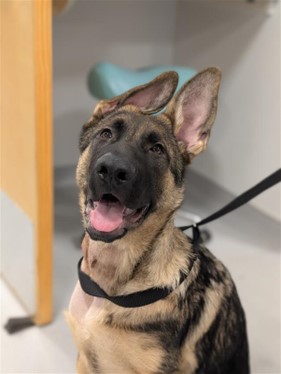Holiday Hazards: Keeping Your Pets Safe This Festive Season

As we approach the holiday season, we are often swept up in planning and decoration. In the rush of preparing meals and traveling, we may not anticipate the different risks that can occur around the holidays. Here at L & L Animal Urgent Care, we are ready to help should your pet have an unexpected exposure, but prevention is always the best medicine! Here are some common hazards to have on your radar during the holiday season.
Dogs
Our intelligent and curious canine companions often get into trouble through their mouths. While pet parents may be aware of common hazards, other friends or family members may not consider how tenacious dogs can be. Unless the contents of a Christmas present are known and safe, they should not be left under the tree. Many well-meaning families send chocolate, macadamia nuts, or dark chocolate covered espresso beans, all of which smell like a delicious treat but can be toxic to dogs.
Visiting guests may also not be used to everyday pet-proofing tactics and may have hazards carried in their suitcase. From baby toys, pacifiers, and tiny clothing to over-the-counter painrelieving products such as Ibuprofen and topical diclofenac (Voltaren), guests of all ages can unknowingly bring dangerous items into your house. Other common hazards include chewing gum or mints containing xylitol as well as nictotine and tobacco products, including vaping pens, that can be very dangerous if ingested or chewed-on. We recommend keeping doors closed to guest rooms at all times to help prevent accidental snooping from pets.
Many of our dogs have learned to love human food and will occasionally pursue our counters in the off chance of scoring a tasty treat. While a large amount of human food can give stomach upset to any dog, holiday baking can bring about increased risks. Rising bread dough is of particular concern since it rapidly expands in the stomach and can release by-products (ethanol alcohol) that are dangerous to dogs. Dogs are not particularly discriminating when it comes to distinguishing food from packaging and have been known to eat plastic wrap covering food items. They may also knock down and break glass pie pans, eating both the pie and glass shards in the process. Other holiday treats containing large amounts of salt and cream of tartar (even homemade Play-Doh) are concerning as it has been recently found to be toxic to dogs.
When walking outside in inclement weather, be aware that ice or very compact snow can cause painful paw abrasions or lacerations. De-icers often contain calcium carbonate, calcium magnesium acetate or chloride salts of potassium, magnesium, and sodium; these calcium salts pose the greatest hazard if ingested or allowed to stay on the skin, as they can be severe irritants.
Cats
While cats can get into many of the same toxins as dogs, their playful nature increases some specific risks for them. A Christmas tree provides a novel climbing experience and can provide the opportunity for dangerous situations to occur. In addition to knocking over the tree, they may chew on light cords causing a fire hazard or experience electrical burns or shocks. The beautiful tinsel and ribbon that we use is especially tempting and dangerous for cats. Ingestion of these string-like items can cause a dangerous type of intestinal blockage called a plication or severe bunching of the intestines after ingestion. A cat does not even have to intentionally eat these items. As they explore their world with their mouths, their barbed and raspy tongues make it very hard to spit out an object once they have licked it; sometimes they can only swallow what has been caught on their tongue.
Both dogs and cats may chew on plants. Holiday specific plants of concern to cats can include lilies. Lilies describe a variety of plants, and it can be difficult to distinguish what is safe and what is toxic. Because of this, we say “if in doubt, throw it out" since even the pollen of lilies is severely toxic to cats. Some other plants commonly associated with the holidays, like poinsettias and holly, are not as toxic as previously observed but can still cause stomach upset and ingestion should be avoided. Mistletoe can cause more serious cardiac issues if large amounts are ingested, but typically causes severe stomach upset when small amounts are consumed.
As you celebrate the holiday season, remember that keeping your pets safe is just as important as enjoying the festivities with family and friends. By being mindful of common hazards and preparing ahead of time, you can help ensure that your pets stay out of trouble and avoid holiday mishaps. However, accidents can happen, and if your pet experiences an unexpected exposure to a toxin or injury, know that L&L Animal Urgent Care is here to support you. Our team is available to help assess and manage pet urgent care needs so that you can return to enjoying the season worry-free. For help with toxin ingestion after our hours, we recommend contacting the ASPCA Animal Poison Control Center at (888) 426-4435. This paid phone consultation will provide access to a veterinary toxicologist with an extensive toxin database and work directly with your veterinarian to ensure your pet receives complete and thorough care.
From all of us at L&L Animal Urgent Care, we wish you and your furry family members a joyful, safe, and healthy holiday season!
Author: Dr. Cathy Pierce




.png)














